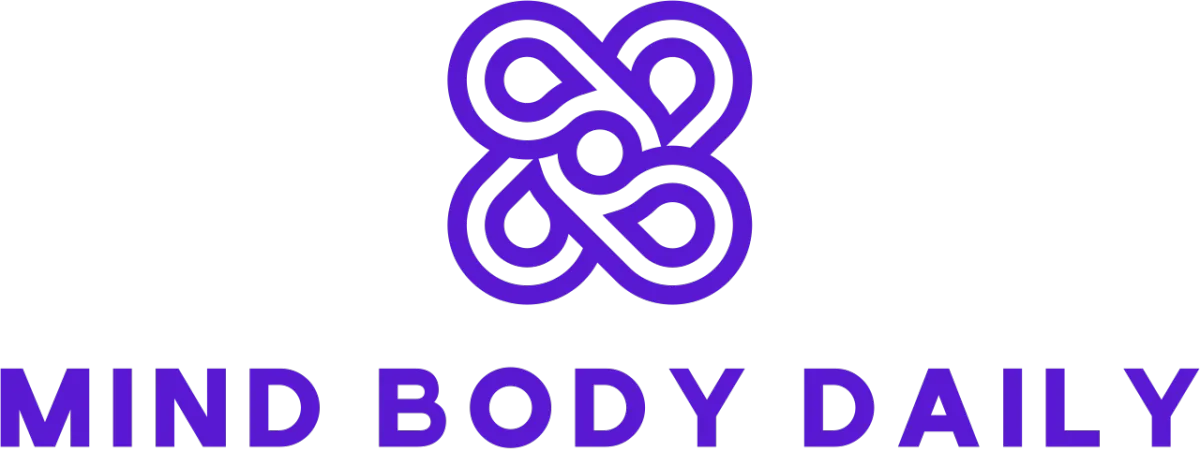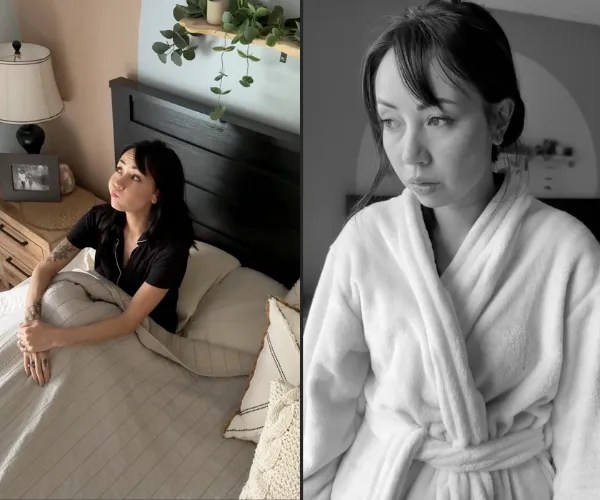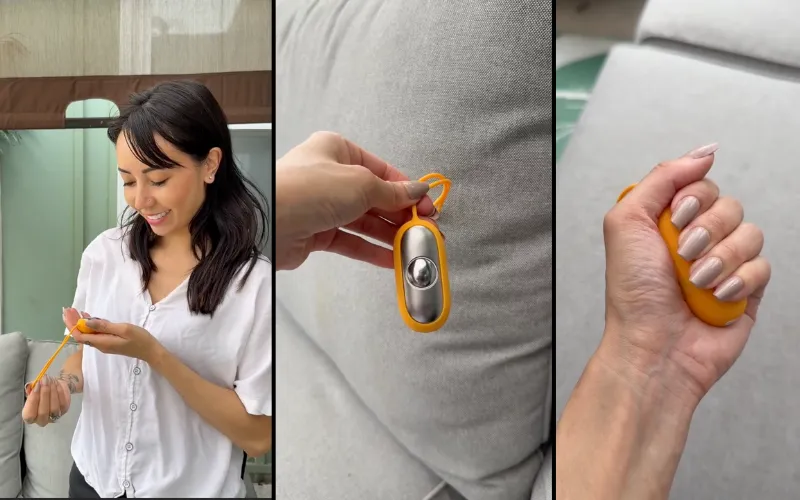ADVERTORIAL

The following is a promotional story in partnership with Chill Pill™, based on real customer experiences.
Published on August 28th, 2025
She Counted Sheep Until 4 AM Every Night Until She Discovered This Natural Sleep Aid
"How I finally got deep, restful sleep, naturally."

By Sarah Parker
Mind Body Daily Contributor
👁️🗨️ 9241
It always started the same way...
First, that bone-deep exhaustion hitting me around 9 PM, making me think "tonight will be different"...
Then, the moment my head touched the pillow, my brain would light up like a Christmas tree with every worry, regret, and tomorrow's to-do list...
And finally, watching the red digits on my alarm clock mockingly count the hours 11 PM, 1 AM, 3 AM knowing I'd be exhausted the next day.
It happened on Sunday nights when I dreaded Monday morning.
It happened after stressful work days when I needed sleep the most. It even happened on vacation when I should have been completely relaxed.
Friends would say things like, "Just clear your mind," or, "Have you tried chamomile tea?"
Yes, Michelle. I've tried everything.
I tried meditation apps, blackout curtains, white noise machines, sleep hygiene routines, weighted blankets you name it. They helped a tiny bit... but nothing truly stopped the nightly occurrence of lying there, exhausted but completely wired.

The Night I Almost Gave In
The turning point came on a Tuesday night after days of poor sleep. I was so desperate that I found myself holding that bottle at 3:47 AM, reading:
"Take one tablet 30 minutes before bedtime as needed."
I'd been avoiding them for months. I'd read about potential dependency issues and concerns about long-term use.
That night, I made a decision that changed everything. I put that unopened bottle back in my drawer and decided there had to be another way, even if it meant enduring more challenging nights.
I had no idea that choice would lead me to discover something that could support my natural sleep patterns.

My 4 AM Discovery That Changed Everything
After another sleepless night, I found myself in an online forum where insomniacs shared their experiences.
Most suggestions felt useless - I'd tried them all.
But buried in one thread, I found something that opened my eyes: a discussion about acupressure - an ancient healing practice that's been helping people sleep naturally for thousands of years.
Unlike acupuncture which uses needles, acupressure uses gentle pressure on specific points throughout the body to activate your natural healing responses. What fascinated me was learning that your hands contain some of the most powerful pressure points in your entire body.
A major randomized controlled trial published in 2022, involving 200 participants with insomnia disorder, found compelling evidence for acupressure. The study showed that people who learned self-administered acupressure had "significantly greater improvement" in sleep quality compared to those who only received sleep education¹.
Additional research published in PMC - a systematic review and meta-analysis of 41 studies - confirmed that "acupressure can effectively regulate disturbances in the meridian system" and showed "significant increase in serum melatonin" in people receiving acupressure for primary insomnia⁴.
What fascinated me was learning that acupressure is "less time-intensive, low cost, and flexible to perform" compared to other treatments¹.
I asked myself: "Could this really be true?"
Sure enough, a comprehensive 2024 review published in Frontiers in Neurology confirmed that acupressure "has a favorable safety profile while substantially enhancing the sleep quality" and comes with "few adverse reactions and low costs"².
There's one particular point in the palm of your hand that may be effective for relaxation and sleep support. According to traditional Chinese medicine, stimulating this point may send signals to your brain that it's time to rest and prepare for sleep.
Recent clinical research confirms what ancient practitioners knew: acupressure points may connect to the parasympathetic nervous system — your body's "rest and digest" mode.
Multiple studies support this approach: A burn unit study found that acupressure significantly lowered sleep quality scores and reduced anxiety³. The 2022 randomized controlled trial specifically found that participants taught self-administered acupressure showed "significantly greater improvement" in sleep symptoms and "related daytime impairment and mood problems"¹.
Clinical research has also shown that acupuncture combined with supportive therapies achieved a "96.8% total effective rate" compared to pharmaceutical sleep medications⁵.
The research showed this approach was "feasible and effective" when taught through just a short training course¹.
I spent hours researching this approach.
With each study I found, it became clearer that this could be worth trying.

The Breakthrough
But there was a problem.
Manually applying pressure required precise technique and focus - nearly impossible when you're exhausted and your mind is racing at 4 AM.
My breakthrough came when I discovered a small device that used Pressure Point Therapy Technology - gentle electrical pulses that stimulate the acupressure points more precisely than manual pressure.
The first night I tried it, I held this little device in my palm for about twenty minutes and started feeling a wave of calm wash over me. By the time it automatically shut off, I was already feeling drowsy.
The approach seemed elegantly simple: the gentle pulses may travel through the nervous system, potentially sending a biological signal that it's safe to relax.
For me, the device (called the Chill Pill™) became my pathway back to more natural, restorative sleep.
A Natural Sleep Aid
The difference was noticeable relatively quickly.
Not only did I fall asleep more easily, but I woke up feeling more rested than I had in months. No grogginess, no hangover feeling.
What surprised me most was that it seemed to work better over time, not worse. The device seemed to help train my nervous system to relax more easily with more time.
It felt like my brain was remembering how to sleep naturally.
After a few weeks, I started falling asleep more easily even on nights when I forgot to use it.

What It Meant Long-Term
The financial aspect is significant too. This was a one-time purchase that provided ongoing value for my sleep routine.
Most importantly, I feel empowered with a natural approach. I have confidence that I can support good sleep anywhere, anytime. Today, I sleep soundly through the night, waking up refreshed and energized.
Those 4 AM ceiling-staring sessions are a memory.
When people ask me if I'm "cured" of sleep challenges, I tell them — I'm not cured, I'm equipped. I have a tool that works with my body's natural systems.
Editor's note: The Chill Pill™ represents an emerging category of sleep technology that uses electrotherapy to promote natural sleep. Due to growing concerns about sleeping pill dependency and increasing interest in drug-free sleep solutions, the company has created educational resources for those seeking to learn more about this approach. Individuals should consult their healthcare provider before making changes to current sleep management strategies.
*Individual results may vary. Many users report benefits within days to weeks of consistent use. This approach may support natural sleep patterns but is not intended to diagnose, treat, cure, or prevent any disease.
Learn More About the Chill Pill Technology → https://chillpillshop.com/products/chill-pill
References:
¹ Association of sleep duration and sleeping pill use with mortality: cohort study of 484,916 adults - PubMed 37045661
² Mortality Risk of Hypnotics: review of 34 studies - PubMed 26563222
³ Self-administered acupressure for insomnia disorder: randomized controlled trial of 200 participants - PubMed 35193046
⁴ The central regulatory effects of acupuncture in treating primary insomnia: comprehensive review - Frontiers in Neurology
⁵ Effectiveness of Acupressure on Sleep Quality: systematic review and meta-analysis of 41 studies - PMC11884929

_